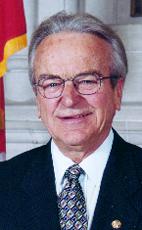Madam Speaker, it is interesting to listen to opposition members tonight and hear presentation after presentation regarding their Christmas wish list, not taking into consideration where this country was a very, very short time ago, when we were heavily in debt and the economy was in a mess. We came from the status of a third world country to the wonderful position we are in at the present time.
Yes, we do have a surplus, but we have hundreds and hundreds of organizations, groups and lobbyists and a great number of other needs which have been identified for that money.
Yes, there are a great number of problems in the transportation system because of management processes, the way in which policies have evolved and what has happened in the past 50, 60, 70, 80, 100 years. There is no doubt about it. However, this is the first time in the history of this country that we have had such an open, transparent process in getting lobbyists and all other partners involved; anyone, we might say, who is a partner in the process. Anyone who has some concern related to any aspect of transportation is able to contribute in some way toward the development of a transportation policy.
It is essential that the country continue on this path to develop the vision which the hon. member says we lack. However, we are not dictators. A dictator could come up very, very quickly with a vision; in fact in five minutes. A very true democratic process takes a very long time because we have to get the people of the country involved in identifying the problems, the process for solving the problems and so forth, and not the kind of declarations that we are hearing from a representative of a previous government which helped to create the horrible mess this government inherited.

